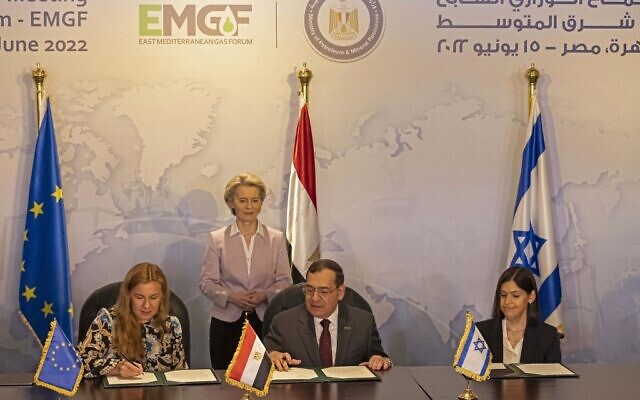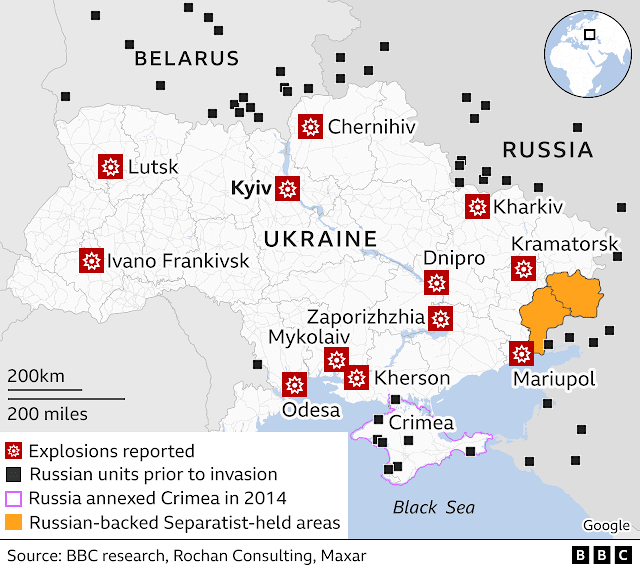TOPIC: EU attempts to diversify from Russian gas with tripartite pact
European Commission Chief Ursula von der Leyen has recently signed an agreement that will see gas shipped from Israel, through Egypt and on to the European Union. The chief declared it a "special moment" at the joint news conference, made alongside Egyptian and Israeli energy ministers. The hope, is that the agreement will lessen the EU's dependency on Russia for gas, following outrage at the Russian invasion of Ukraine in February. Just last year, the EU as a whole imported roughly 40% of its natural gas needs from Russia and have been flailing to find alternative sources. Von der Leyen praised the normalisation agreements between Israel and its Arab neighbours, facilitated by former President Donald Trump, as integral to long-term peace and prosperity across the Mediterranean.
The Tripartite Pact
The pact between the EU, Israel and Egypt will see Israeli gas brought through a pipeline to the large Egyptian-owned LNG terminal, where upon arrival it will be liquefied and transported on tankers to the EU. In advance of this deal, the EU set aside 657 million euros in order to construct a 2,000-megawatt undersea electricity cable that will link the power grids of EU members Cyprus and Greece, with non EU member Israel. It has been said it will be the longest and deepest undersea cable ever built.
Yet the co-operation between Israel, Greece, Cyprus and the EU does not end there. In 2020, these nations signed a deal to build an undersea pipeline to carry gas from new offshore deposits in the south-east of the Mediterranean onwards to the EU. Originally, the project, named the 'EastMed pipeline' was estimated to cost $6 billion, with an eventual potential to supply 10% of the EU's natural gas requirements. However, construction on the pipeline has been slow, whilst the EU and the US have both been sceptical about the feasibility of the project.
The Israeli Gas Industry
In preceding years major offshore discoveries have propelled Israel in to a key gas exporter. Two major gas fields with a combined 690 billion cubic metres of natural gas have been discovered and Tel Aviv shows no sign of halting its search for more. One maritime field of particular interest is in a disputed zone with Lebanon in an area of around 328 miles. The field, named Karish, has already been subject to limited Israeli exploitation, with a gas rig set up in the area. Lebanon disputes the legality of the Israeli operation, but Israel insists that the field is part of its United Nations-recognised exclusive economic zone. However, with the Lebanese economy and political system in disarray, it possesses few means by which it can seek to assert its claims, leaving the Israeli's in pole position to provide the EU with future gas supplies. Indeed, in an effort to find commercially viable quantities of gas, the Israeli energy minister, Karine Elharrar, recently tweeted that Israel was "engaging in efforts to assist Europe... [by] embarking on the fourth Israeli natural gas exploration."
For now, both Israel and Egypt are vital in the diversification of the EU's natural gas supplies away from an unreliable and unpredictable Russia. But what the energy future for the EU holds is hard to predict. By 2030, its use of natural gas is expected to decline, in line with its hope for carbon neutrality by 2050. If that is probable, or even possible, is yet to be seen.




Comments
Post a Comment